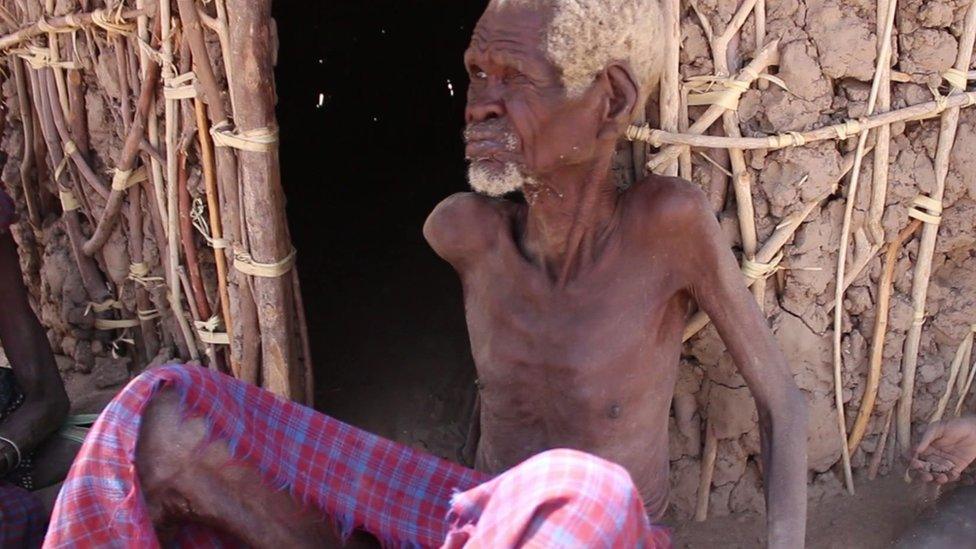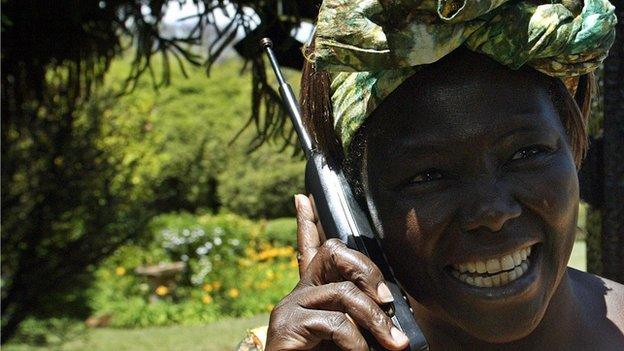Kenyan anger over Turkana 'starvation' being ignored
- Published

Poor rains, livestock disease, a locust invasion are among the factors blamed for the starvation
Kenyans have accused their government of ignoring drought victims following reports that at least 10 people have died of hunger in the north-western Turkana region.
The hashtag #WeCannotIgnore has been trending on Twitter in the country.
The Kenyan government has said more than 1.1 million people are facing food shortages.
But authorities say this figure is "normal" and the deaths are not directly related to the drought.
James Oduor from the Drought Management Authorities told the BBC that there is nothing unusual about one million people facing starvation.
"Due to poverty, almost under normal circumstances about a million people always require food assistance because... they are poor," Mr Oduor told the BBC's Newsday programme.
He added that the rains from October to December were lower than normal.
'Not yet an emergency'
Livestock disease, a locust invasion and insecurity in the region have also been blamed.
But Mr Oduor said that this "is not yet emergency".
"For example 2017, in March, at the height of drought, when the president declared drought a national disaster, we had almost 3.4 million [in need]," he said.
The matter has been trending on Twitter in the country following posts by BBC journalist Roncliffe Odit on Monday of these pictures:
Allow X content?
This article contains content provided by X. We ask for your permission before anything is loaded, as they may be using cookies and other technologies. You may want to read X’s cookie policy, external and privacy policy, external before accepting. To view this content choose ‘accept and continue’.

Allow X content?
This article contains content provided by X. We ask for your permission before anything is loaded, as they may be using cookies and other technologies. You may want to read X’s cookie policy, external and privacy policy, external before accepting. To view this content choose ‘accept and continue’.

Allow X content?
This article contains content provided by X. We ask for your permission before anything is loaded, as they may be using cookies and other technologies. You may want to read X’s cookie policy, external and privacy policy, external before accepting. To view this content choose ‘accept and continue’.

Although it is the second largest of Kenya's 47 counties, Turkana is also the poorest.
Situated in the extreme north-west, Turkana is one of the driest and least developed regions of Kenya and some critics say politicians only visit the area when they appeal for votes.

- Published19 September 2013
